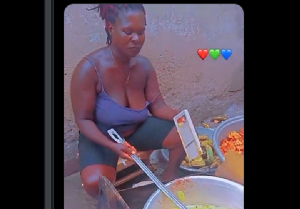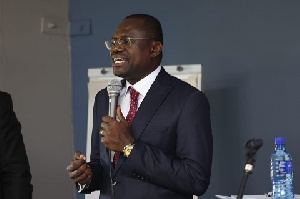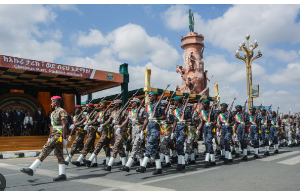The music fraternity is reeling with shock at the violent death of SA reggae legend Lucky Dube on Thursday night.
The Slave star was shot dead in a botched hijacking in Johannesburg after dropping off his two children, aged 15 and 16.
Police spokesperson Cheryl Engelbrecht said the 43-year-old musician was travelling in his grey Chrysler when the three men attacked him. The killers fled the scene in a blue VW Polo, leaving the musician’s car behind.
“His son was already out of the car. When he saw what was happening, he ran to ask for help.” The children were unhurt in the incident, which happened at 8.20pm.
Gauteng police commissioner, Perumal Naidoo has reportedly handpicked a seven-member team to track down Dube’s killers.
Dube’s longtime friend and manager of 20 years, Antos Stella, spoke to the Saturday Dispatch from Ghana, describing the killing as ‘senseless’.
“I’m devastated and angry because I’m sitting here and there’s nothing I can do,” said Stella, who was on a business trip at the time.
Stella played a vital role when Dube began his career in the reggae genre after he had quit Mbaqanga in the early 1980s. The two also travelled together to the Reggae SunFestival in Jamaica in 1991.
“He was the first South African artist to ever feature in that festival. At the time, we weren’t allowed to go overseas so we had to leave our passports at customs in Montego,” said Stella.
They had since travelled to countries such as Ghana and Rwanda.
Most musicians the Dispatch spoke to yesterday said Dube was never properly recognised by the very same stations that were playing his music yesterday after his death.
For the first time in ages, MetroFM played two of his tracks yesterday.
Dube’s fans were also snatching up his CDs at East London’s stores yesterday. Nicky Wolmarans, an employee at Music Mix in Vincent, said about 10 of Dube’s CD were bought yesterday, a rare occurrence in a single day. An employee at Musica in Oxford Street said they had to turn customers away as they had run out of stock.
“It’s a painful thing that we don’t show pride of our talent when they are still alive. Maybe when I’m dead you will hear my music on Y-FM,” said McCoy Mrubata.
Mrubata played and toured with Dube’s band between 1994 and 1995.
“It’s a great loss not only to music but to the development of the country too. He was a generous man who even helped children from poor families with funds so they can go to school. I know one boy who is a doctor today because of Lucky,” said Mrubata.
Erstwhile disco queen Mercy Pakela slammed the country for failing to honour Dube while he was still alive. “He was among the most selling musician to come out of this country. He is the only reggae musician from SA to stand by their genre of music. Don’t tell me we could not see that.
“Our media has adopted a bad culture of neglecting our own while American musicians flourish in our own back yard.” Pakela played with Dube between 1987 and 1990.
“It saddens me that the media is suddenly interested in Lucky when they were not playing his music when he was alive. They did the same thing with Mahlatini.
“South Africans have forgotten to celebrate his legacy while other African countries continued to pump his music. But Rastas Never Die, said Stella, quoting one of Dube’s songs.
l Meanwhile condolences came from across the political and cultural spectrum, with everyone from President Thabo Mbeki to the South African Football Players Union praising Dube’s legacy and raising concerns about the level of crime.
Mbeki made an appeal to South Africans to confront the “scourge” of crime together. “This is … very, very sad that this happened to an outstanding South African, an outstanding musician, world renowned,” he said as he was leaving for France to support the Boks.
Mbeki conveyed his condolences to the family and also to Dube’s fans around the world.
Mlambo-Ngcuka said: “For more than two decades he confronted pertinent social and political issues through his music, bringing to the fore the pain and suffering of many South Africans.”
Arts and Culture Minister Pallo Jordan called him one of the most “important and relevant” reggae voices to come out of this country in the 20th century. “What makes his death more painful is that it happened at a time when government has renewed its pledge to forge a partnership with people, communities and their institutions to fight crime.” —












